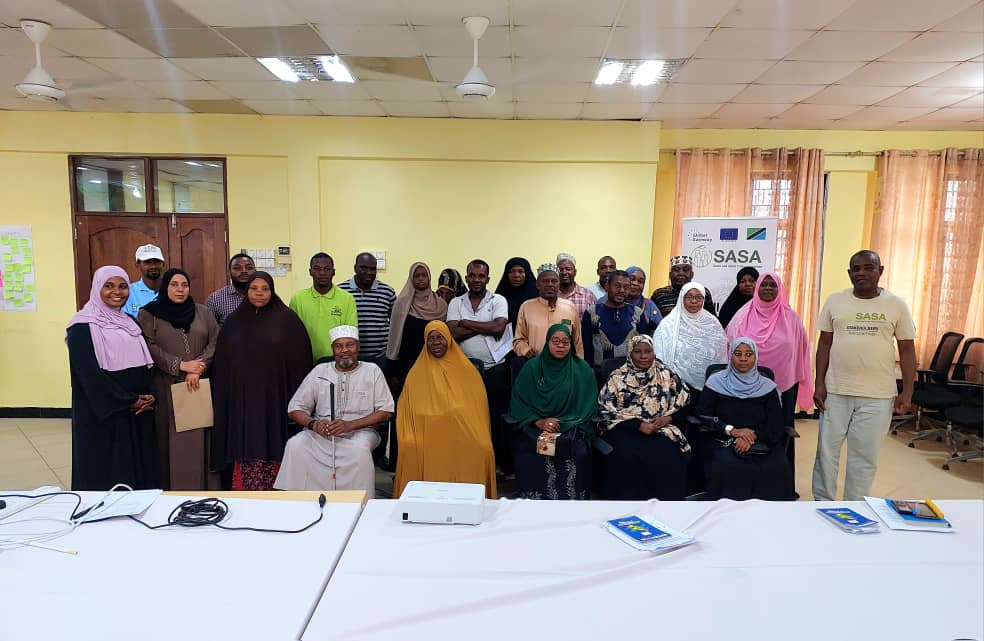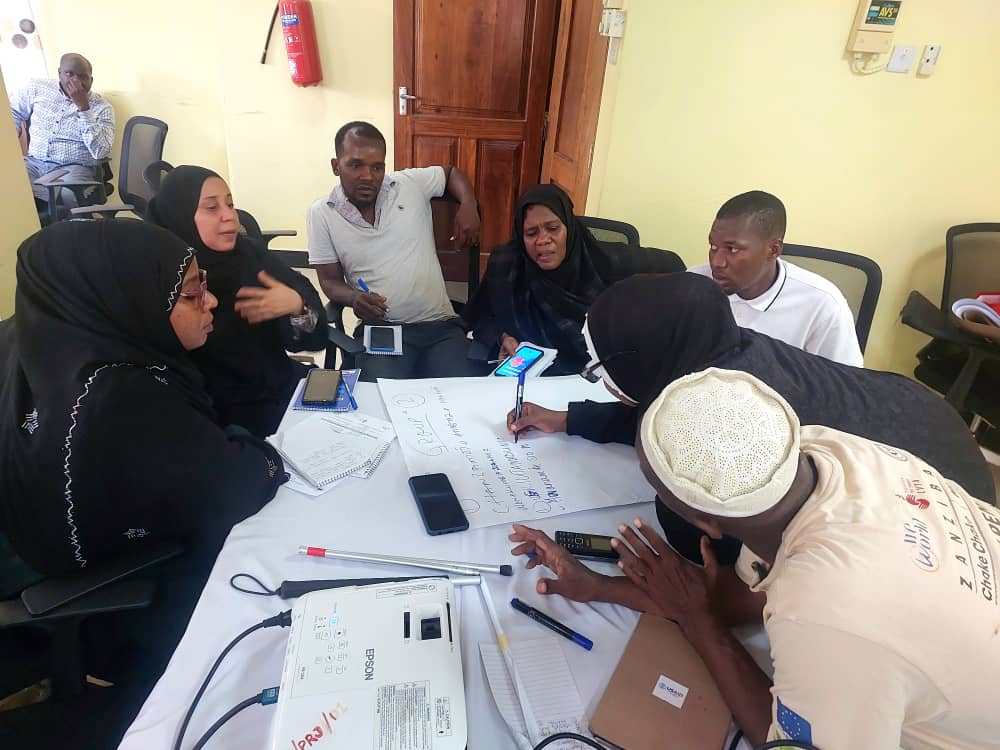1. Introduction
The Gender-Inclusive Leadership Training was held from 03rd to 05th March 2025 at the Chake-Chake Municipal Hall in Pemba. This three-day training was organized under the project “Strengthening Urban Eco-Resilience in Chake Chake and Mkoani” (Project Code: EuropeAid/176583/DD/ACT/TZ), implemented by the Kijani Pemba consortium (PIRO, LVIA and We World). The primary objective of the training was to address the slow progress of women and girls in leadership roles and decision-making processes within local authorities and civil society organizations (CSOs). The training aimed to equip participants with the knowledge and skills necessary to promote gender equality and inclusive leadership, thereby fostering a more equitable and inclusive society.
The training was facilitated by Dr. Said Khamis, a renowned expert in gender studies and capacity building, and Mr. Rashid Mwinyi, a seasoned trainer and advocate for gender equality. The training covered a wide range of topics, including gender concepts, gender-inclusive leadership, barriers to women’s participation in leadership, and the development of gender-inclusive policy.
2. General Objective
The general objective of the training was to build the capacity of women and girls in leadership roles and decision-making processes, enabling them to actively participate in urban governance and management. This objective aligns with the broader goal of promoting gender equality and empowering women to take on leadership roles in their communities.
Specific Objectives
The specific objectives of the training included:
-
To discuss cultural and societal barriers that hinder women’s participation in leadership roles.
-
To explore the economic position of women and its influence on leadership opportunities.
-
To provide participants with tools and strategies for promoting gender-inclusive leadership.
-
To develop a Vade Mecum document outlining how to involve women and girls in decision-making processes.
3. Participants Profile
The training session convened 27 participants, including 13 men and 14 women, from a diverse range of institutions, including local authorities, civil society organizations, and community groups. Participants were carefully selected based on their roles as decision-makers and key stakeholders in urban governance, ensuring that the knowledge and skills acquired would be effectively shared and applied within their respective organizations and communities.
Among the attendees were representatives from the Municipalities of Chake Chake and Mkoani, as well as key government departments, including the People with Disabilities, Women, Youth, and Environmental Departments. Additionally, the training engaged members of various civil society organizations, such as KUKHAWA, CHAPO, MDIPAO, NIA NJEMA, WACDS, PEGAO, and ZANAB, along with women’s groups from Chake Chake and Mkoani. Shehas from different shehias where the project is being implemented also participated, further enhancing the training’s reach and impact. The diverse composition of participants enriched the discussions, fostering cross-sectoral collaboration and the exchange of best practices.

Expectations and fears from participants during the training

Pause Photo of participants

Group Discussion during the training
